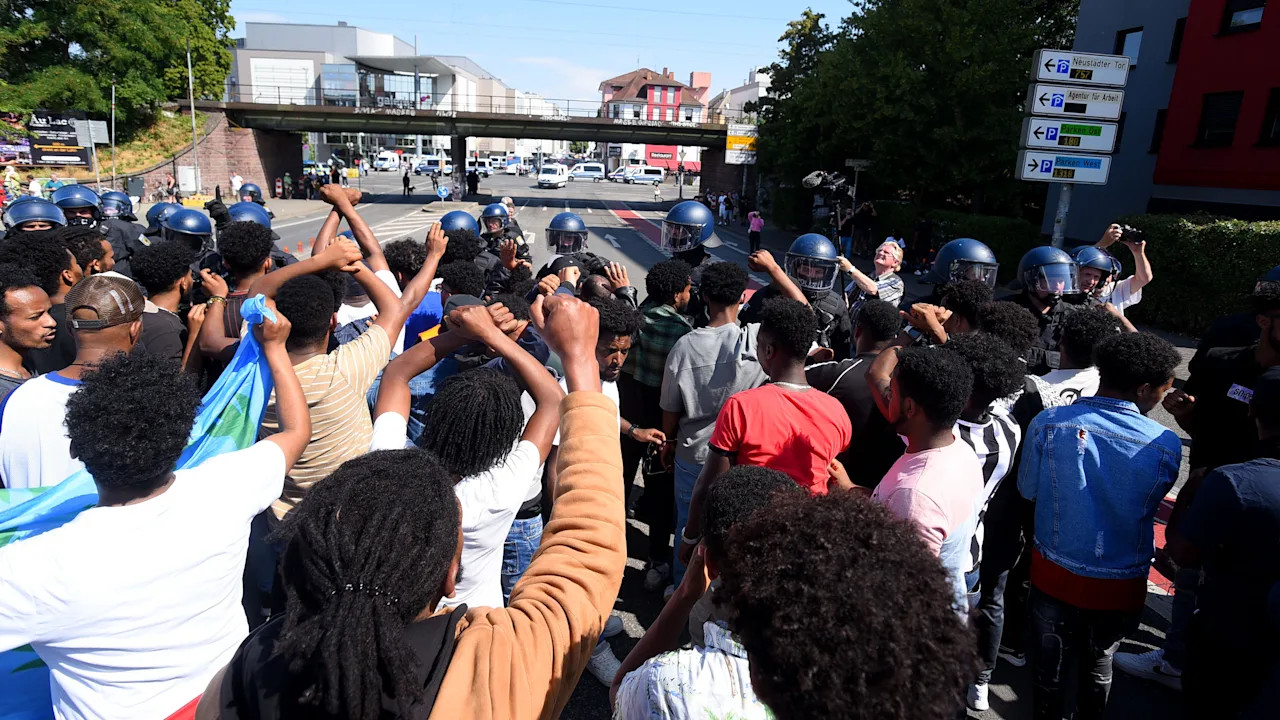At this weekend, the "Eritrea Festival" took place in the Hessenhallen in Giessen, where there were clashes and fights by counter-demonstrators against the police. On Saturday, according to press reports, 28 of the more than 1000 police officers deployed were injured, about each 100 people were taken into custody and preliminary proceedings were initiated, the police spoke of "massive attacks" on the part of the protesters and used pepper spray and truncheons. Bus services were suspended in the city.
The protests took place because the festival serves as a propaganda stage and source of funding for the reactionary Eritrean government. While almost 2000 people took part in the festival on Saturday, counter-demonstrations with about 300 expected participants were registered for Friday and Saturday. On Friday, the demonstration was stopped and dispersed by the police, but on Saturday, the protesters resolutely defended themselves. Last year, there had already been attacks on the festival with stones, batons and knives, which is why the police contingent was increased and the event was initially banned by the city, until the court recently overturned this decision.
Eritrea's fascist regime with Isayas Afewerki (officially interim president for 30 years) has its roots in revisionism in the national liberation movement, which gained state power after Eritrea's independence from Ethiopia in 1993 and today, mainly as a lackey of Chinese imperialism, sells out the country under the cruellest conditions; for adult men, there is usually indefinite forced service in the military or as workers in involuntary positions.
The fact that the court was once again the only body defending bourgeois liberties against a legally baseless decree, which the fact that it is a reactionary event does not change, shows the centralisation of power into the hands of the executive and, in this question, especially the restriction of parliament. That it was important to the bourgeoisie to prevent the festival in order to avoid further conflicts is expressed in a statement by Hesse's Minister of the Interior Peter Beuth (CDU), who says: „It must be made clear to the Eritrean government that Eritrean conflicts must not be carried out on German soil. Our police officers are not the buffer stops for conflicts of third countries.“
German imperialism has to handle the situation, because although this is an opportunity to train the police in the use of reactionary violence against the struggles of the deepest and broadest masses in the context of militarisation, it has to avoid creating the image that it supports the "autocratic state" which, apart from its enmity with Ethiopia, where Germany is the biggest importer of coffee, also has "difficult relations" with the USA, among others. Nevertheless, the stones, glass bottles and smoke bombs flying towards them show that the exploited and oppressed masses are full of class hate towards both the lackey rulers in Eritrea and the bourgeoisie in the imperialist countries. That this fact is now being exploited by the bourgeois press for yet another massive spread of imperialist chauvinism to divide the workers should be self-evident.











